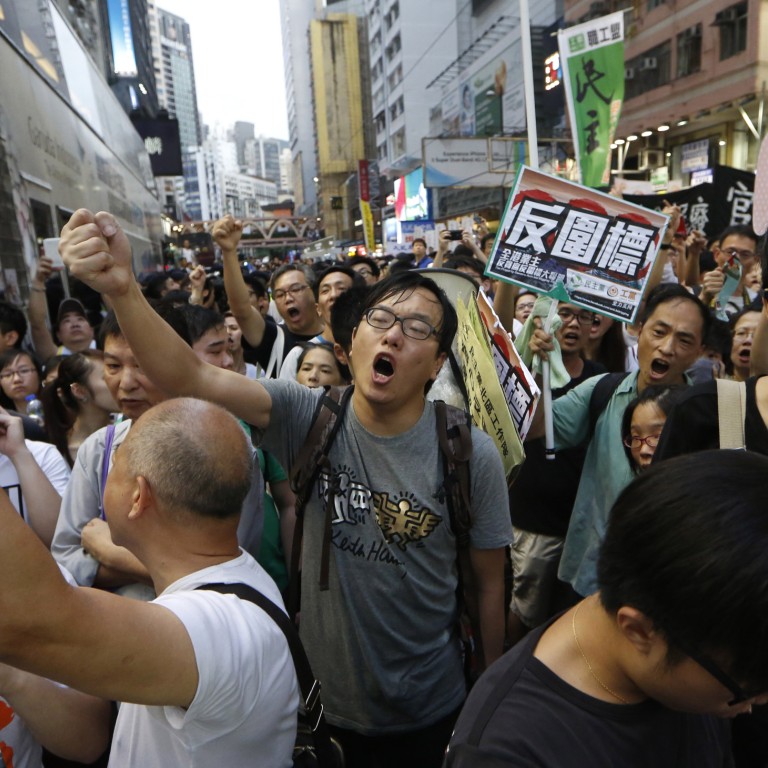
Universal suffrage will let people feel they have a real stake in Hong Kong
Frank Ching says while the UK report on Hong Kong was soft on Beijing, it was right to note how people here value having genuine choice
The latest British six-monthly report on Hong Kong was released at a sensitive time. It came weeks after China's white paper on "one country, two systems" and on the same day as the disclosure that Chief Secretary Carrie Lam Cheng Yuet-ngor's public consultation report and Chief Executive Leung Chun-ying's report to the National People's Congress Standing Committee were to be made public this week.
The British report noted that the white paper had triggered intense debate in Hong Kong, with many arguing that it was "in breach of the Joint Declaration and attempted to limit Hong Kong's autonomy".
That being the case, one would have thought that Britain, co-signatory of the Joint Declaration, would state its position on the white paper. Instead, Foreign Secretary William Hague simply noted that the Chinese government had asserted that the paper did not mark a change in policy. That, it seems, was good enough for Britain, which had just signed trade deals with China valued at more than £14 billion (HK$185 billion) during Premier Li Keqiang's visit.
Beijing no doubt intended the white paper as a warning to Hong Kong people not to go too far. But the effect was to cause hundreds of thousands of people to protest by participating in Occupy Central's "civil referendum" and swelling the ranks of the July 1 march, the biggest such demonstration in a decade.
Britain's decision not to comment on the white paper - the first time China had released such a policy paper since the Joint Declaration was signed in 1984 - was regrettable.
Nonetheless, the British report did have good things to say about democracy and the media. It voiced strong support for press freedom, saying "we take seriously concerns about press freedom, including fears about self-censorship".
The next day, the Chinese foreign ministry rejected such comments as "interference by foreign countries" in Hong Kong. The success of the "one country, two systems" policy had been universally acknowledged, a spokesman said.
On universal suffrage, Hague hit the nail on the head by saying: "The important thing is that the people of Hong Kong have a genuine choice and feel that they have a real stake in the outcome."
At the end of the day, to make the 2017 election meaningful, Beijing must agree to a procedure which is not only consistent with the Basic Law but also - to paraphrase the Bar Association - one that respects, facilitates and gives effect to public expectations.
The Hong Kong administration is reporting to Beijing what the people want. Hopefully, the central government will accommodate those aspirations.
The Chinese government has declared that it will grant democracy to Hong Kong, something that Britain did not do in its more than 150 years here.
While Beijing must abide by laws, it should not use the law to frustrate the desire of Hong Kong people to feel that they are masters in their own home. If the system ultimately proposed is imperfect - as it is almost bound to be - then Beijing should make it clear that it will be improved in the years to come.

